Investigative journalists Damilola Ayeni and Ibrahim Adeyemi were on the streets of Lagos to investigate complaints by members of the public about the operations of officers of the Lagos State Traffic Management Authority (LASTMA). They found out that both on the Mainland and the Island, LASTMA officials are more interested in extorting motorists than ensuring free flow of traffic, maintaining traffic order, or helping people in life-threatening situations escape danger.
A LASTMA official is approaching. He saunters to the front of the car to stand between me and the exit leading to Yaba, but I’m already pulling over.
“Why one-way, sir?” he asks, his face shoved in through the front passenger’s window.
“I’m sorry; someone is sick and needs to get to the hospital urgently,” I respond. “I had to find a way fast as the traffic would not move.”
“Park there and explain to my boss,” he instructs, now sitting in the car.
“I waited there for a while, sir, and the traffic did not move. Someone is really sick and needs to get to the hospital. It’s urgent.”
“I didn’t say you lied, and from your look, you are educated. Have you ever seen ignorance in the court of law?”
The 100-metre one-way driving was a simulation by a three-man team, following a complaint by a Lagos resident who breached traffic rules while rushing to fetch his sick wife from the house to the hospital and only secured freedom after paying to the private pockets of LASTMA officials without any attempt by them to establish if someone was indeed dying.
THE COMPLAINTS THAT TRIGGERED THE STORY
When the gas pedal went down in the morning and a cool blast of ‘adventure Wilbury’ signalled the start of this journey, so much was going on in my mind. I was going to tell the story of LASTMA officers who turn stones to bread on Lagos roads. They have shortchanged the government out of so much and made many cry on the streets.
Kadiri Rotimi, a medical doctor, was in their net in May. Kadiri was driving on the Third Mainland Bridge around 8am when he received a call from the hospital. A patient was dying, and he needed to give first-aid instructions right away. So he slowed his car and put on the hazard light.
READ ALSO: LASTMA Officials Extort N20,000 from Medical Doctor Rushing to Meet Sick Patient
LASTMA officials who saw him receive a call waylaid him. They said he had committed an offence and the official fine was N100,000, but he could give N50,000 in bribes unless he wanted his car towed away. Kadiri protested. He was only helping to save someone’s life, after all. In the end, Kadiri told FIJ, they drove him to a nearby ATM and purged his account of the N20,000 left in it.
Dr. Kadiri was not the only one. On Wednesday August 4, a Lagos resident was driving on Ikorodu Road towards Yaba when he descended the Murtala Muhammed Bridge only to find out only one lane of what was normally a four-lane road was open. A construction work was going on and the traffic was a gridlock. He made a one-way detour to connect the road under the bridge he just left. The cost? N10,000 paid to the pockets of LASTMA officials after several minutes of haggling as though he was buying pepper in an open-air market.
“I am a law-abiding member of the society and let’s be clear, it’s not like I hopped on one way and drove like forever. No. This was just a 100-metre detour to avoid a road closure by the governemt,” he had told FIJ.
“If LASTMA officials were actually there to smoothen the flow of traffic rather than seek bribes, what I did was no problem. When the Third Mainland Bridge was under construction, didn’t the government officially divert commuters to just one lane while the work proceeded on the other? So, why is Yaba different? Again, I wasn’t driving one-way; I only took a 100-metre detour after descending the bridge and seeing that the road had been closed. I pay tax to this government; why should I bear the brunt of man-hour loss when construction is ongoing and there is a 100-metre one-way diversion that can bail me out?”
The complainant’s angst was beyond the money; it was also about the modus operandi of the officials.
“Two LASTMA officials were by the road and I signalled them before taking the detour; they did not stop me. Then two more stopped me at the junction. They were led by a fair-complexioned woman who was almost violent, as if she made my money for me,” he told FIJ.
“Then there was a fifth LASTMA official who entered the car to negotiate; he asked for N100,000, reduced to N30,000 after 15minutes of haggling. A sixth LASTMA official was adding fuel to the matter, intermittently coming to hit the car and screaming that it should be towed away. Guess what, a seventh person, a tout dressed in mufti, was the one the LASTMA officials sent into the car to collect the N10,000 we finally settled on. It was a seven-man gang and the operation was carefully staged; they operated like a criminal gang.”
LASTMA AND OPPRESSION, FIVE AND SIX
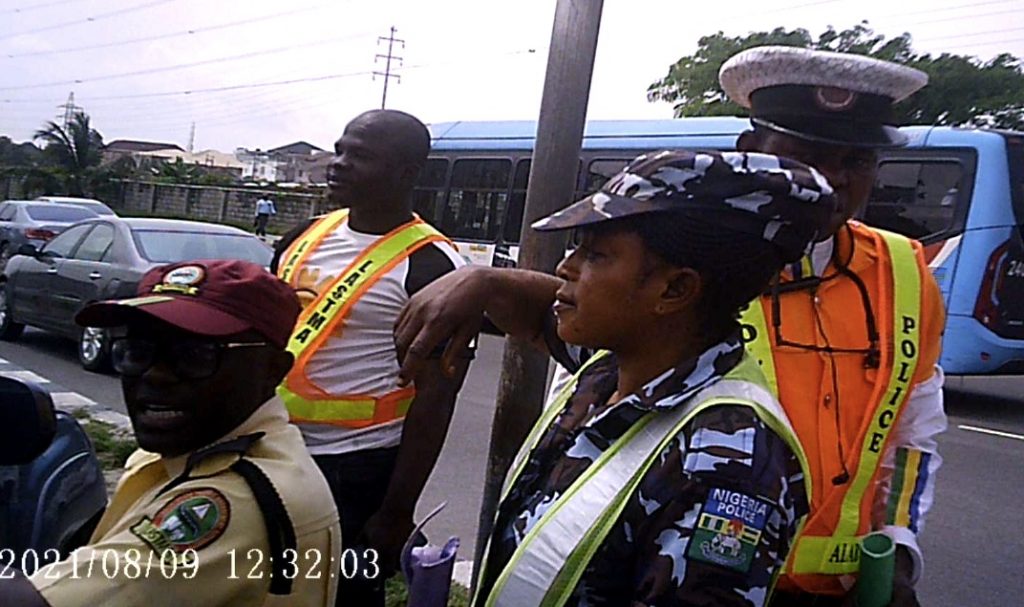
In March, at Leventis, a street in the Maryland area of Lagos, a bus driver ran after LASTMA officials with fire on his body. Monday had been stopped by LASTMA. They requested his key, but he did not give in to them. Monday would tell FIJ that he had committed no offence and that the officials were only going to extort some money from him.
READ ALSO: Why Lagos Bus Driver Set Himself Ablaze in the Presence of LASTMA Officials from Oshodi
One of them started dragging the key with him. Then some wires locked at the ignition and there was a spark. Monday’s shirt caught fire. His bus – he had just finished paying for it in installments – went up in flames. Frustrated, Monday ignored the fire roasting his skin and ran after the officials, who had fled as soon as they saw what had happened. By the time Monday was rushed to LUTH, the damage to his body was significant. He needed several hundreds of thousands to survive.
A few weeks ago, LASTMA officials prevented a woman from getting to the hospital on time and it almost cost her life. She had been bleeding and couldn’t use the safety belt. A LASTMA official jumped into her husband’s car and drove both of them away. It took the efforts of medics at Igando General Hospital to rescue the woman who had already bled too much.
RE-CREATING THE YABA SCENARIO
Now, we are on the Murtala Muhammed Bridge, with a mix of the same LASTMA officials to re-create the scenes of the road user whom a seven-man LASTMA syndicate obtained money from. My eyes are blinking fast and my eyebrows are pulled up to communicate anxiety. The other two FIJ reporters in the car also have faces like a cat on hot bricks. We’d set out like we were going to rescue a very sick person.
“Officer, we wouldn’t have needed to turn back if the major road had not been blocked for construction work,” one of my colleagues says. “You know we are not just plying a one-way, it’s…”
“I’m not talking about the road under construction,” the officer cuts in. “Facing here, like this, is one-way!”
“Yes. It’s just to cut that construction going on. We didn’t mean to follow a one-way; it was just to cut the construction by 200metres.”
‘GO AND SEE MY BOSS’
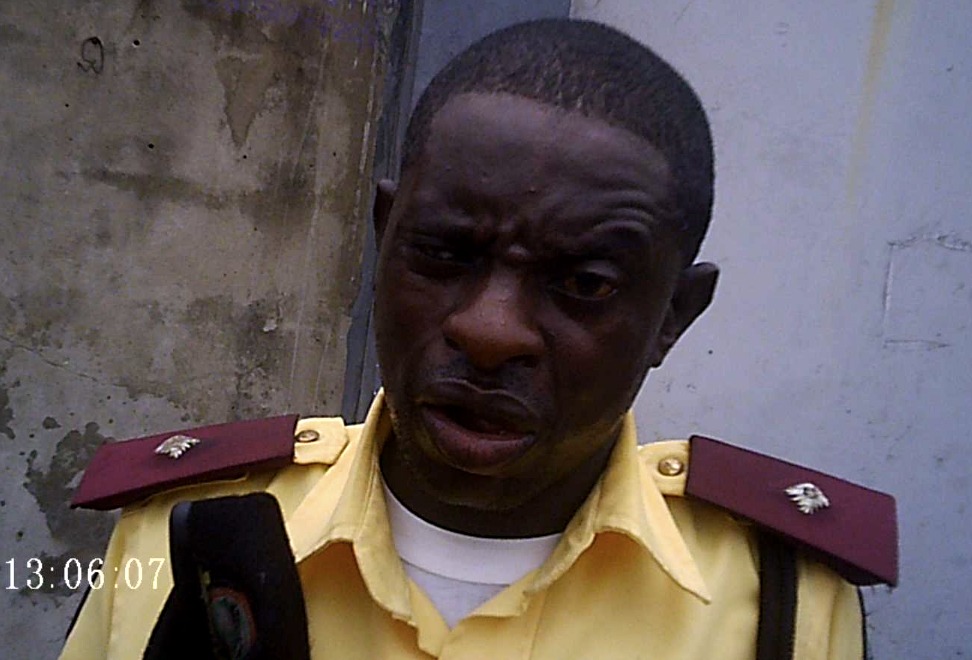
“Do you know what you are saying? Even if you were living around there and you faced this way, it would still be an offence, because there’s a sign there; you can only go in you cannot come out…”
“They’ve closed almost the entire road. The traffic is not even moving at all.”
“It’s moving. Don’t say that again; we are the ones who cover this place.”
“Officer, it wasn’t moving. We are just coming from the place,” I interrupt.
“Well, on a normal day, I should take you to the office. But because of what you are saying, go and see my boss.”
The LASTMA boss sits beside a driver in a Hilux truck painted yellow with splotches of dark brown. My story seems to get him until he shouts me off and orders one of his men to “drive the car to the office”. He seems infuriated by my ‘very sick person’ story.
And then I ask him, “Should I have let the person die?” Should I have remained behind static traffic for hours and gone home to bury someone I could have rescued?
There is the letter of the law and there is the ‘spirit’ of the law. And then there is a question as old as Socrates: whether one can disobey the law a few times in good faith. While the law is meant to ensure the greater good of all, obeying it can sometimes be against the greater good.
‘HEAVEN HELPS THOSE WHO HELP THEMSELVES’
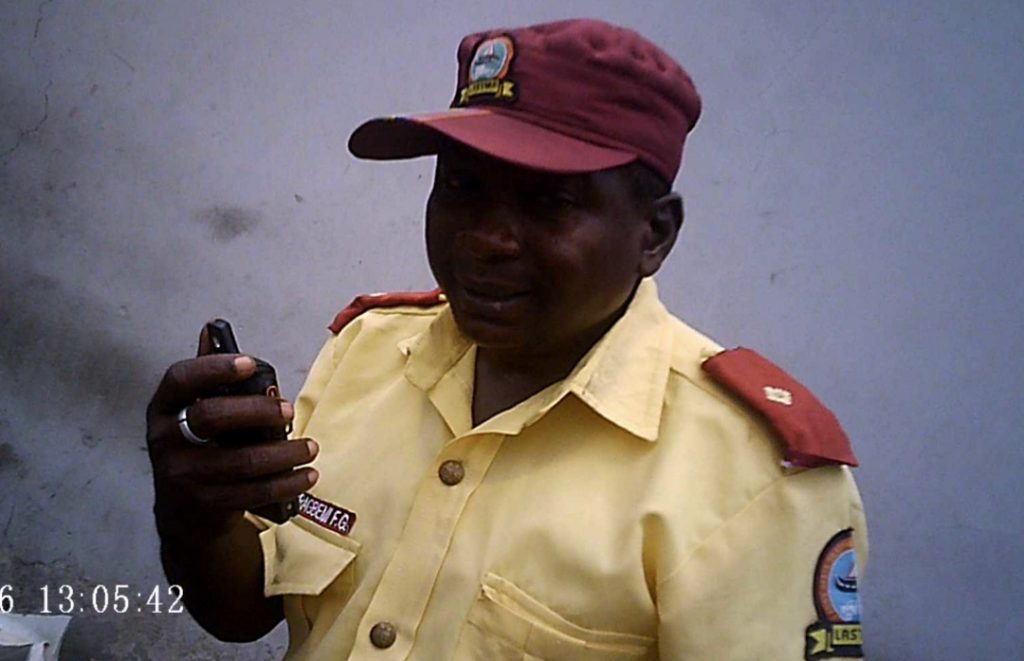
The LASTMA boss is driving us to no-one-knows-where, probably the same place they’ve called ‘our office’ several times. His breast tag reads “Eburagbemi F. G.” One of my colleagues pleads again. And then the other officer — the one who stopped us earlier — speaks.
“I’ve told you a lot of things,” he says. “You know, it’s not possible for us to enter your compound. We are doing our own work. And again, you all use Android phones. You can ‘google’ Lagos State traffic offences and see the punishment for one-way driving.”
“We’ll accept whatever you tell us,” we respond.
“One-way driving is the highest fine,” Eburagbemi interrupts.
“What you will not be proud of doing… You don’t understand what I’m saying?” The other officer continues.
“Please, sir.”
“What do you want him (Eburagbemi) to do for you?”
“Please, help us.”
“But, first thing, ‘google’ the Lagos State traffic offences.”
“No, we are okay with whatever you tell us.”
“One-way drive is forfeiture. Are you getting me now?” Eburagbemi says.
“Officer, we are not arguing.”
READ ALSO: Frustrated Tricycle Rider ‘Strips Naked, Fetches Cutlass’ in Protest Against LASTMA
As shown by previous complaints to FIJ, conversations like this are a permanent feature of uniformed officers’ extortion of the public. There is always an attempt to intimidate the victim into guilt… to show that the penalty is very high, meaning the bribes they seek is just to “help” their victim.
Eburagbemi parks the car by the roadside. The walkie-talkie in his hand is lost in a discussion we know nothing about.
“See, heaven helps those who help themselves,” he declares.
“Okay, sir.”
“Once you get to the office, there are two things: it’s either they refer you to court – it’s one-way. If you appeal, you pay N200,000 or [they charge you] based on the model of your car. Officially, one-way is ‘forfeiture’. If they don’t do anything, they can give you caution fine of half of the money. And, if you need a call, I’ll call for a tow van and they will tow the vehicle.”
“We are just begging, sir. You said heaven helps those who help themselves; we will try to help ourselves.”
“How?”
“You are the one to tell us. We are not in control here. It’s not our world. So, it’s whatever you say.”
“Even though he wants to assist you,” the other officer says, “you can see our people. They’ll be shouting. You don’t want to help someone and put yourself in trouble. The normal thing is to take you there and then you face it. Nothing more than that.”
“Yes. So, what do we do, sir?”
“Don’t worry, oga will tell you,” the other officer says.
“Normally, it’s forfeiture,” Eburagbemi resumes.
“But you said you wanted to help us. So, it can’t be a forfeiture.”
“Oga, if you enter now, no matter how, this car is not coming out again.”
“We know, sir.”
“And it’s one-way. The least we collect for one-way here is N50,000,” Eburagbemi declares, scratching his beards. “Just for caution fine: ‘Don’t do that again’. They will change it. Are you getting me now? I don’t know. The ball is in your court.”
‘SOMETHING FOR BREAKFAST’? NO!
“So, instead of that N50,000, what do you think we can do, sir?”
“I said the ball is in your court.”
“What do you think you can do?” The other officer asks. “Because we are not meant to be doing all this negotiation.”
“I don’t do it. It’s very, very [sic] dangerous,” Eburagbemi says.
One of us replies him: “Instead of that N50,000, can we give you money for breakfast, sir? Maybe just like N5,000?”
“Five thousand is too small. Nobody will collect it. Do something reasonable,” the other officer says. “And here, we don’t stay long. Anybody can see us; I don’t want to [implicate] myself.”
“Okay. Let’s give you N10,000, sir.”
“How would you help them, oga?” The other officer asks Eburagbemi.
“If they can give us N20,000, we’ll let them go.”
“Please, sir. You know we didn’t plan to encounter this,” we replied.
“Let’s take them in,” the other officer says.
My colleague’s phone rings. He speaks to the caller like she was the emergency patient we had set out to rescue. We are still coming. But how long does it take to die? Say she’s bleeding. Anyone can die from severe bleeding in a few minutes. Someone experiencing symptoms of heart attack can also be helped to the hospital urgently, lest it becomes cardiac arrest and the person dies. But none of the officials makes any attempt to confirm if someone was indeed dying, much less render a helping hand if required. In a country where no one dials 911?
VALID EXCEPTIONS TO TRAFFIC LAWS
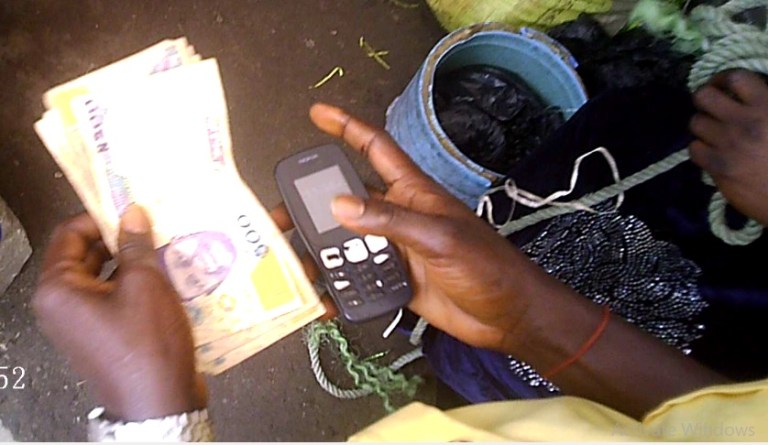
A study published in BMJ Global in February revealed that Lagos traffic has “life-and-death” implications for residents in urgent need of medical attention. From the data collected from 738 pregnant women who arrived at four of the city’s largest hospitals with life-threatening conditions, the researchers found that travel times can be up to four times longer than the suggestions of satellites and computers.
In 2017, a communications specialist in the Arepo area of Lagos told Punch that his neighbour “lost the use of his limbs” in Lagos traffic. He had high blood pressure and was referred to a hospital in Oshodi. But after more than six hours in traffic, he suffered a stroke and was paralyzed.
READ ALSO: LASTMA Official Who Confiscated My Phone Threatened to Jail Me When We Met Again
Several laws across the world understand that traffic rules can be breached in an emergency. For instance, the U. S. Rules of the Road uses the clause, “except if required by an emergency,” when stating that “a person shall not drive a vehicle on a controlled-access highway”.
But in Lagos, Nigeria, these LASTMA officials don’t care. After many pleas, they beat down the bribe to N15,000. We tell them we don’t have money on us and they point us to a POS.
“Let’s give them from the money we planned to give the doctor,” one of my colleagues says, just so we remind them of what brought us here. The LASTMA officials position themselves close to a small kiosk. The younger one receives the money, moves closer to the kiosk, turns his back and counts. “Confirmed, sir!”
‘WE HURT THOSE WHO HURT US’
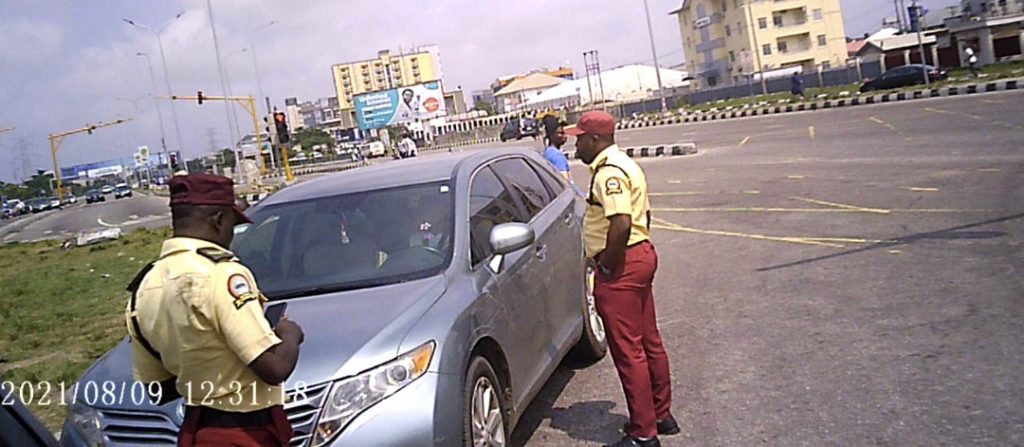
From Ikeja to Lekki, LASTMA officials follow similar operation patterns. They set out to make money for themselves, using different means. Some deploy emotional blackmail, while others use sheer force. Some work alone, and others work with police operatives or agents of other security outfits.
In any case, the only offender who gets into the authorities’ net is the one who has refused to ‘cooperate’. In Lekki, a police officer tells us, “We respect those who respect us; we hurt those who hurt us.”
Her name is Esther. She was instructed by her LASTMA and police colleagues to take us to the ‘office’ after we deliberately made a U-turn at the wrong turning, right in front of them. This move we modelled after the experience of a road user, new in Lagos, who complained to FIJ that he was extorted by LASTMA because he turned at the wrong end while being distracted by Google Maps, which he relied on to navigate his way around unfamiliar Lagos. The officials didn’t care to confirm if he had Google Maps on or not; they took N10,000 from him.
THE LET’S-GO-TO-OUR-OFFICE TACTIC
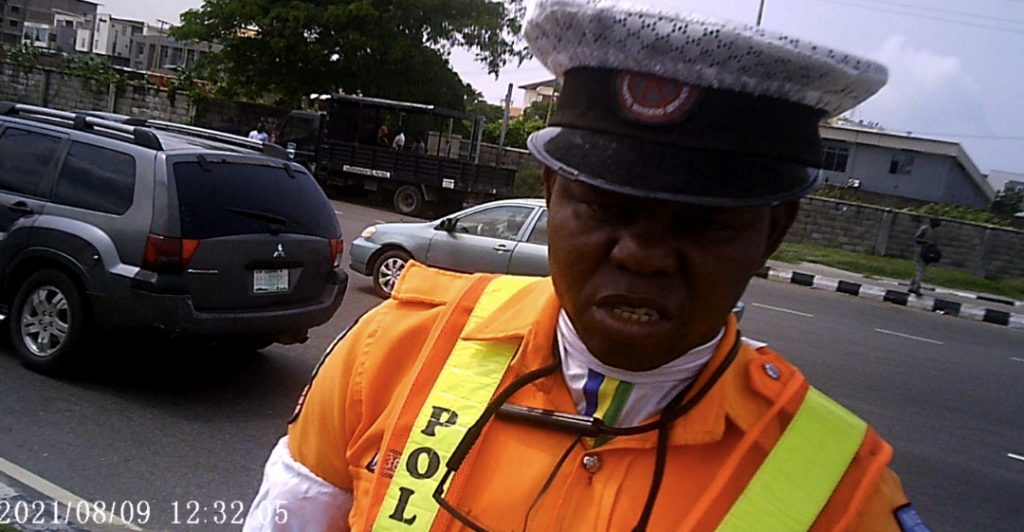
The people who hurt Esther and her fellow traffic controllers are those who do not have money for a bribe or are not willing to give it. Those ones are either charged to court or made to pay huge fines, for hurting them – not for breaking traffic rules.
“Don’t worry. I’ll show you a certain place [where we can park] and talk,” she had said before leading us to Maroko Police Station. “See my gate there, but because you are begging…”
Opposite the police station, Esther threatens to take us inside each time we offer an amount she considers too little. She repeats she is supposed to take our statements and charge us to a mobile court in Alausa, but she won’t “because you don’t look like people who can make trouble”.
“So, say something. We are waiting for you,” she says.
“What if we give you something like N5,000?” One of my colleagues asks.
“Are we babies here that you want to give us something?”
“Okay, N10,000.”
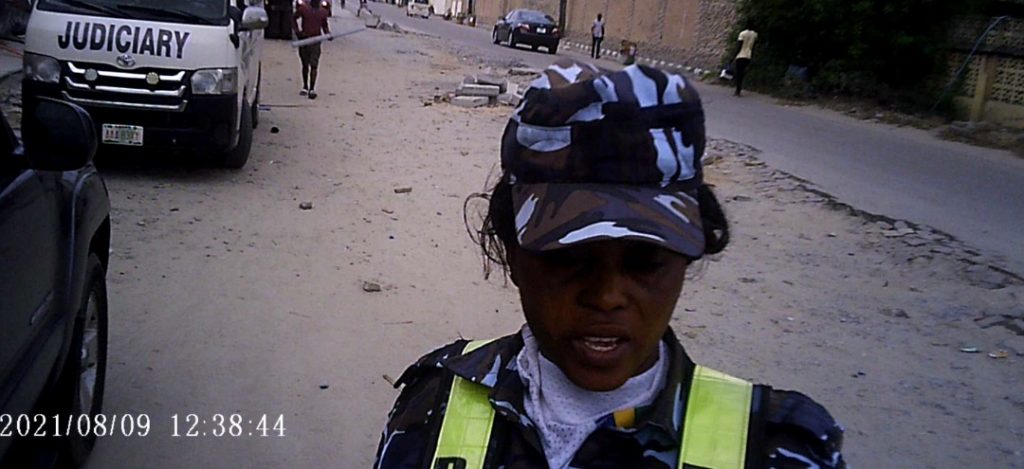
“Oga, let’s go inside the office,” she says, raising her voice to convey some imaginary anger. “You can’t even pay up to N35,000, the cautionary fine?”
When we retrieve cash that was N15,000 from the car, Esther bids one of us to follow her into the police station. There, she collects the money, away from the prying eyes of passers-by, and returns the driver’s licence she seized earlier.
“Shebi I told you not to worry.”
‘APPRECIATION. JUST APPRECIATE US’
A similar thing plays out at Alausa, where an attempt at an illegal u-turn draws the attention of LASTMA officers and a policewoman.
“This one does not know how to drive,” some of them laugh.
The police officer then enters our car and directs us to a place. “Can I see your driver’s licence?” she asks.
After several front-and-backs on the reasons I cannot produce one at the moment, she compares me with her son, who can also make such mistakes. And then she tells us to “appreciate” them.
“But you said it could happen to your son,” one of my colleagues notes. “Please let us go. Or would you want your son to pay some money if this happened to him?”
“Did I say you should pay money? What did I say? I said appreciation. If I want you to pay money, I will move you from here.”
“So, how do we appreciate?”
A female LASTMA officer is coming to take over the conversation. Her name is Orukotan S.
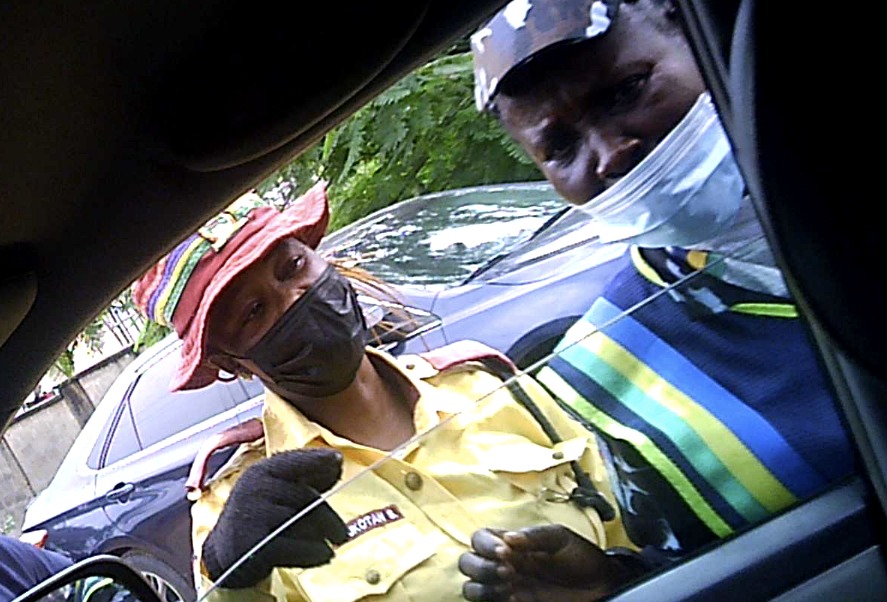
“What did you tell them?” she asks the policewoman.
“I said they should show appreciation to all of us working.”
“What do you want us to do?” Orukotan asks us.
“We want you to have mercy on us so we can go.”
“We’ve had mercy on you already. If not, they would have taken you away,” she replies.
Orukotan is infuriated by our pleas, which seem to take too long. “You cannot leave here free of charge,” she declares. “I can advise you to give N5,000.”
BY ‘HELPING’ YOU, LASTMA OFFICIALS ‘HELP’ THEIR POCKETS
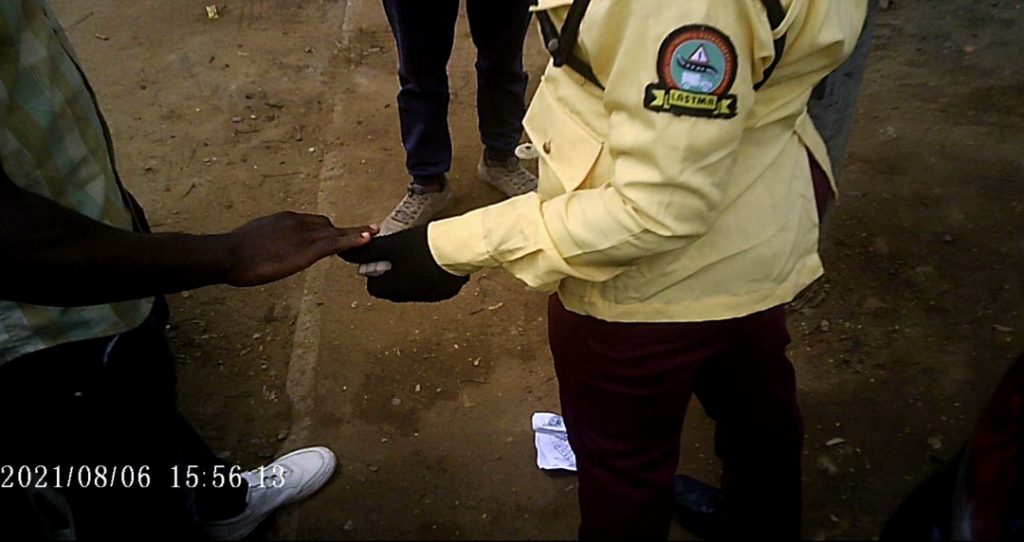
LASTMA officials have mastered the Stalin principle of power and they use it well on unsuspecting road users.
Esther mentioned N75,000 for an illegal u-turn, Orukotan says the fine is N40,000. Another officer would subsequently tell us at Ikeja (under the bridge) that the fine for the same offence is N250,000.
As punishment for an illegal u-turn, however, the extant Lagos Road Traffic Law prescribes the fine of N20,000 for a first-time offender and N30,000 for a second-time offender.
LASTMA officials know that the higher they say the fine is, the likelier an offender will seek an alternative. Whatever they demand as a bribe then looks like a favour to the victim. Easily, they say, “we are helping you”, or “we are having mercy on you”.
But if they actually know the law, these LASTMA officials, and are deliberately using it to manipulate ignorant road users, do they also know that a section of the same law prohibits them from demanding, condoning, receiving or conniving “with any person [to get] gratification in cash or kind” and that any officer who does so is “liable to summary dismissal and prosecution under the Criminal Justice Administration Law”?
N250,000 FOR ILLEGAL U-TURN
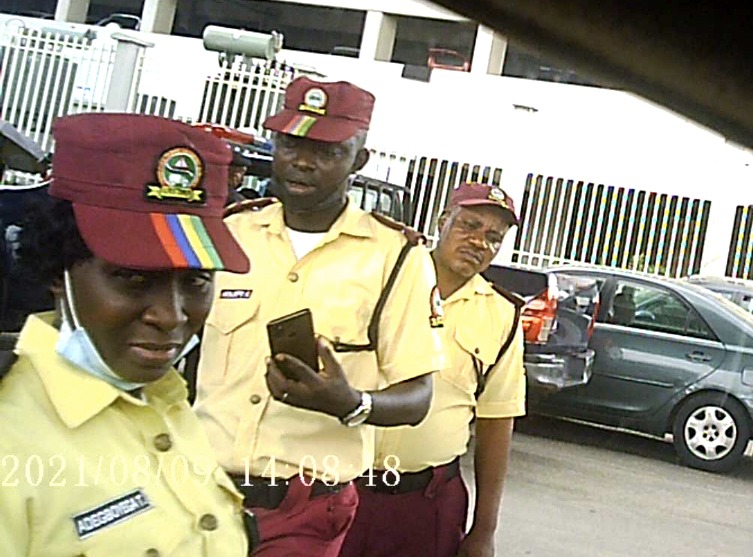
At Ikeja (under the bridge), a lady asks one of my colleagues for his licence.
“Wind down! Wind down! Please, can I see your driver’s license?” Adegboyega T, as her breast tag reads, says.
Her look is beyond suspicion. Finally, we’ve met an upright LASTMA official. But appearance, they say, is deceiving. Adegboyega hands us over to her colleague, whose name tag reads Akinjopo. Akinjopo tells us the fine for illegal u-turn is N250,000. Here, too, we have just attempted a wrong u-turn.
“Two fifty what?”One of my colleagues asks Akinjopo.
“Two hundred and fifty thousand naira,” he says. “That’s why I don’t like to tell people. It will look like I’m exaggerating. I always tell people, ‘Check it yourself’. It’s either you pay N250,000 or your car is forfeited. If it’s an honest mistake, they can accept that one, but if you are still doing…”
“If it’s an honest mistake, how much?”
“Two hundred and fifty thousand. But if you are trying to prove stubborn, it is car forfeiture.
“We are not trying to claim ‘right,’” another of my colleagues submits.
“You are not contesting it. Even if you contest, I have my video evidence. So, what do you want us to do now?” How do you want me to help you?”
“Just release us. Just forgive us.”
“You won’t know the importance.”
“We know the importance.”
“That is not an excuse.”
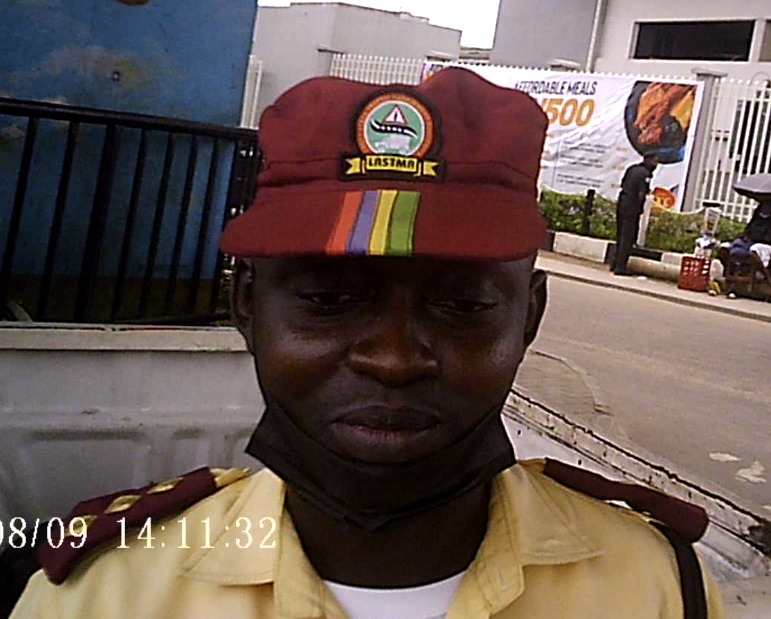
After a few more conversations, Akinjopo asks us to speak among ourselves. We tell him we are ready to ‘cooperate’. A few minutes later, we return with an offer of N10,000. But he claims it’s too little.
“If it was our patrol that caught you, they wouldn’t take less than N100,000,” he says.
We plead with him a little more and then he goes to discuss with his colleagues.
“They said I should take you to the office,” he claims. “Now, you are begging me. You might give me N10,000 now and be saying ‘LASTMA collected money from me’. But if I take you inside now, fine. They’ll book you. It’s just N250,000.”
A few moments later, Akinjopo says he wishes to take us to the office but his spirit doesn’t. However, his spirit does not tell him to release us; it only tells him to fleece us!
Akinjopo asks us to drop the money in the back of the police truck behind him. He returns my colleague’s driver’s licence and off we zoom.
LASTMA SPOKESMAN: ‘EVERY ORGANISATION HAS ITS BAD EGGS’
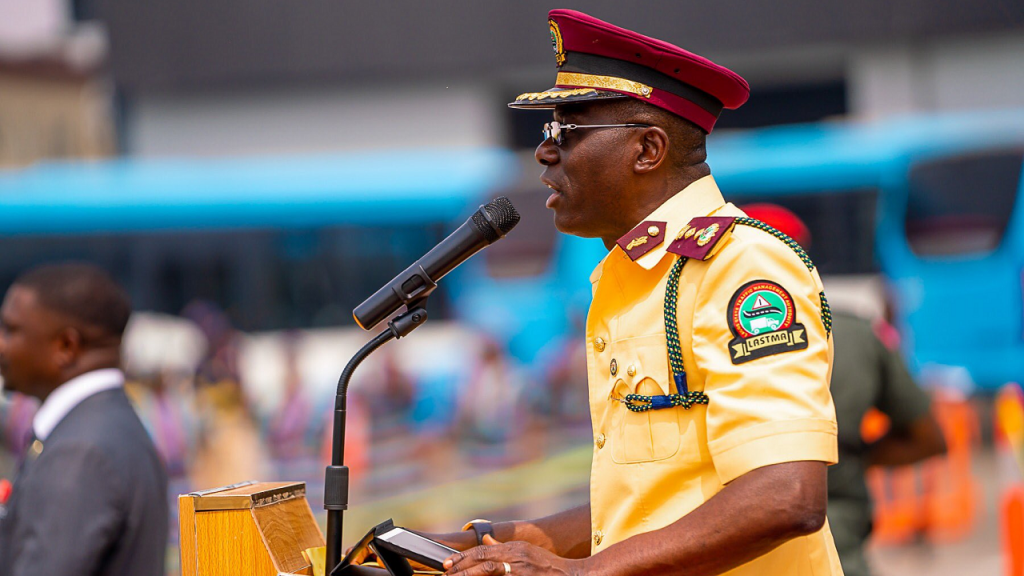
When FIJ contacted Olumide Filade, spokesman of LASTMA, about the behaviour of his coleagues, he said the punishment for officers caught extorting motorists is dismissal.
Filade noted that any LASTMA official found guilty of corruption “will face disciplinary action according to the extant civil service rules and regulations of Lagos state”.
The spokesman referred to corrupt officials as “bad eggs in the organisation”. He also referenced how a LASTMA officer was dismissed for demanding a bribe from a motorist in June.
He revealed, in a statement seen by FIJ, that 11 officers of the agency have so far faced various disciplinary actions from 2020 till date, adding that some of the officers had their appointments terminated, some demoted and others reprimanded for various infractions.
“Every organisation has its bad eggs,” he said. “It is unfair for members of the public to categorise all LASTMA staff as corrupt.”
GOING FORWARD: TRIED AND TESTED SOLUTIONS
Chinasa Ebiere, a UK-based Nigerian, argues that the twin problem of extortion by traffic officials and violation of traffic rules by road users is a creation of the system. She urges the Nigerian government to emulate the UK system, which is designed to “help the public behave by themselves”.
“In the UK, once you buy your car, it is registered,” she says. “The authorities know your location; they’re not looking for you. If you break traffic rules, they just send you a beautiful letter with a fine, and you keep paying. If it’s the Police, you can contest the fine. They appraise your defence and may change their mind, but that seldom happens. And if they send you fines repeatedly and you don’t pay, they just come and impound your car.”
Ebiere herself previously breached the UK’s speed limit rules as a new resident several years back and was fined for it. She says she did not feel cheated, as she knew the money was going straight to the government.
“When I first came to the UK, I was fined some £70 for over-speeding. I told them I didn’t have any money because I hadn’t started working; I was only living on maternity wages,” she recalls.
“They asked how I wanted to pay and I said £5/month; they agreed. So you eventually pay but you pay directly to the government and not to any private pocket. It teaches you not to do it next time and the government also generates revenues. Their system is designed to help you behave yourself by yourself! And that’s what Nigeria needs to replicate!”
Independent, public-interest journalism has never been more vital than in times like this when truth is constantly being suppressed. With your support, it will be easier for us to continue speaking truth to power and preserving your right to know.
Make a donation to FIJ today
Donate Now
Subscribe
Be the first to receive special investigative reports and features in your inbox.


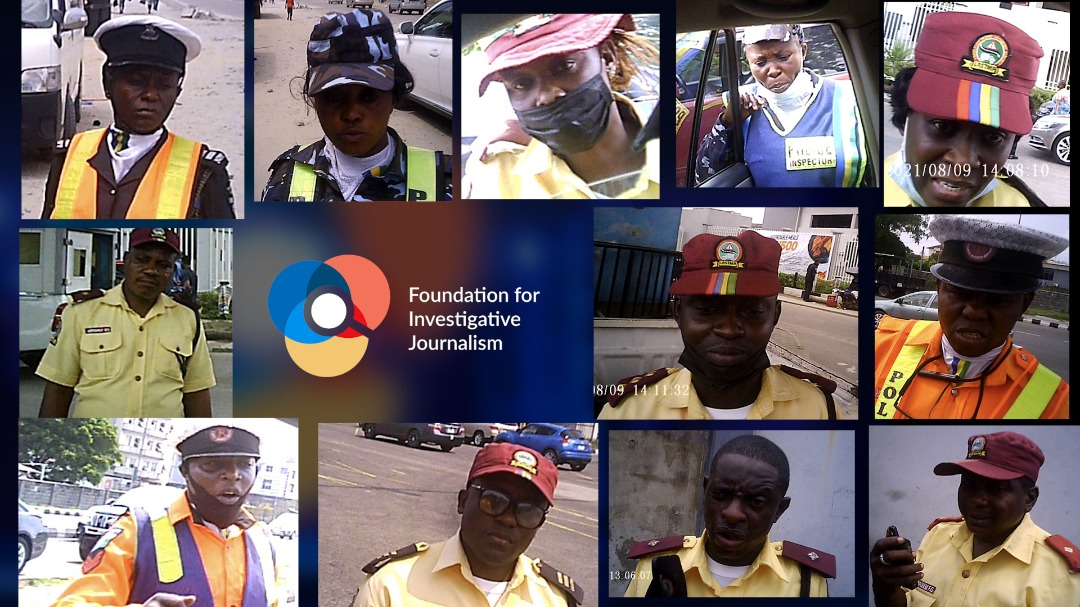



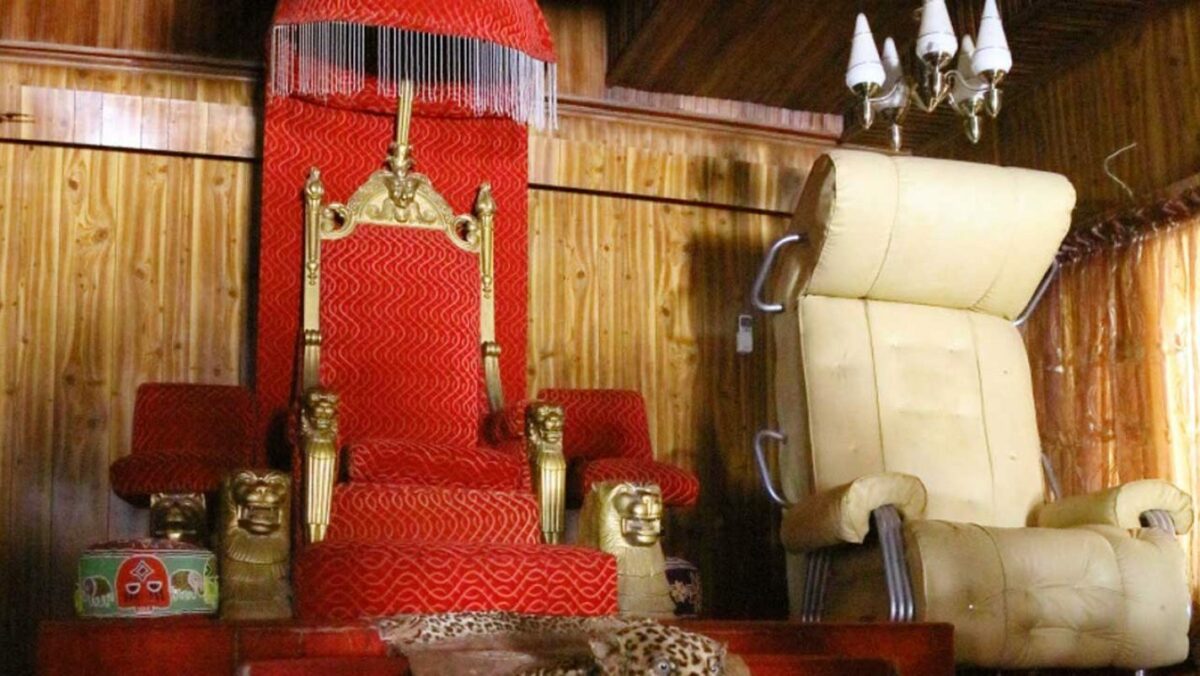
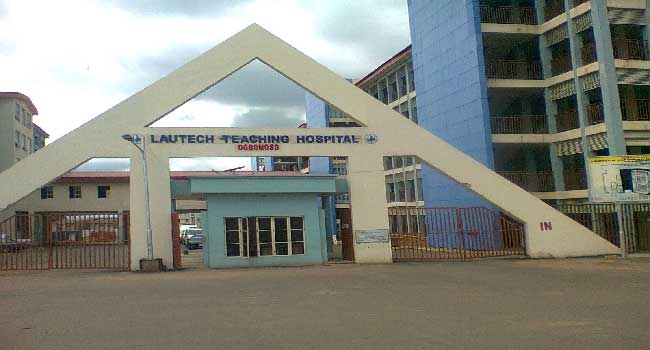

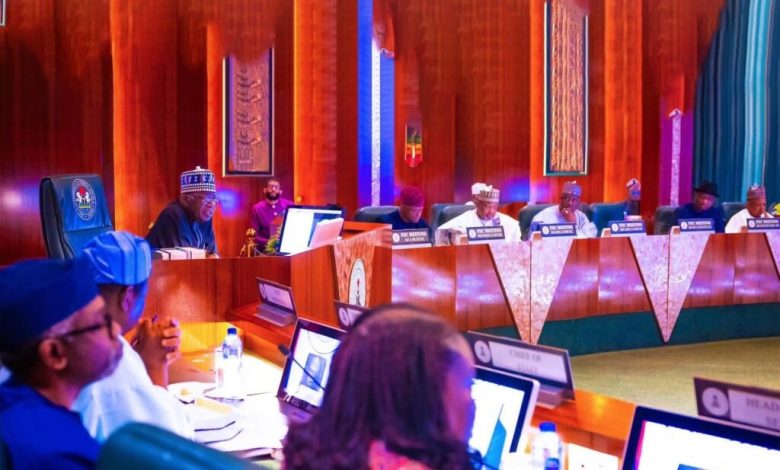
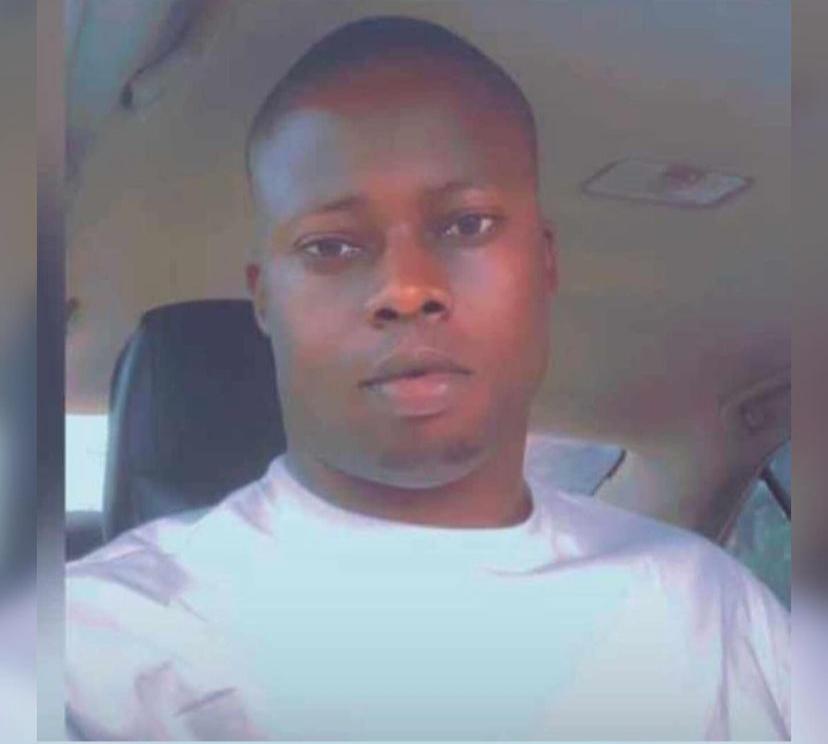
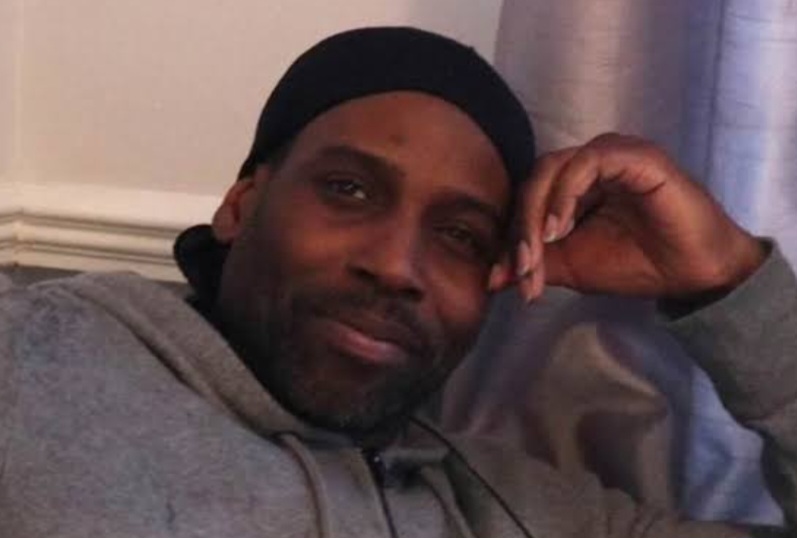
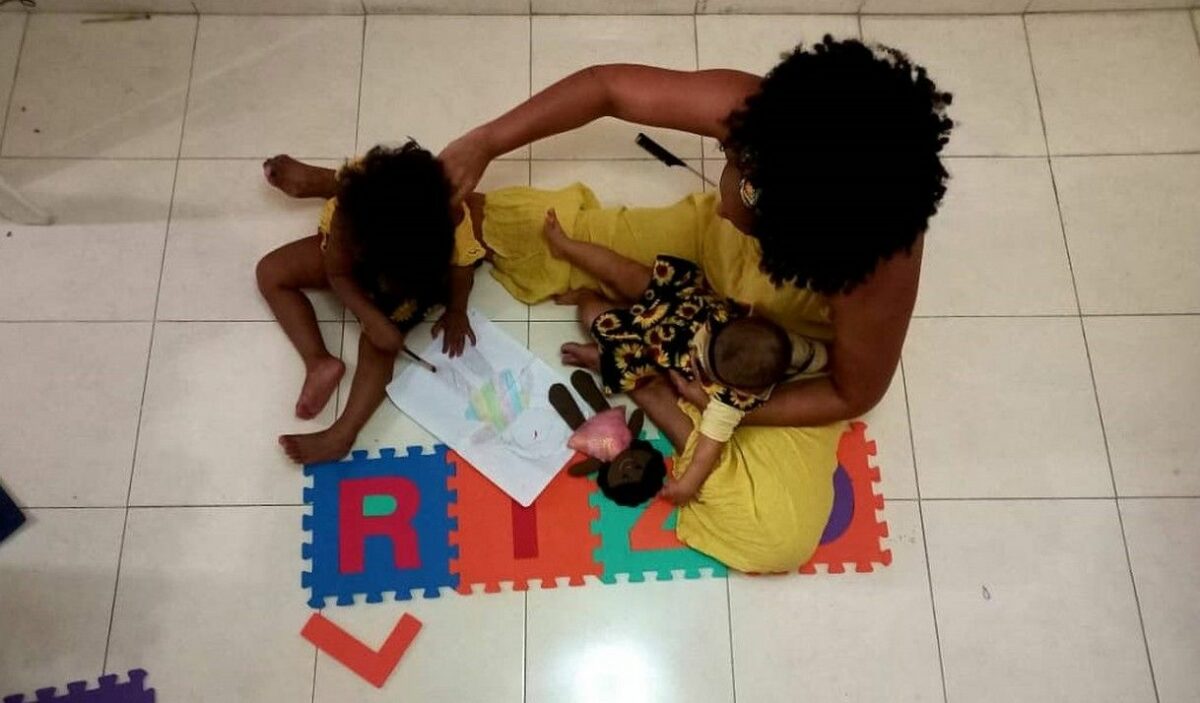
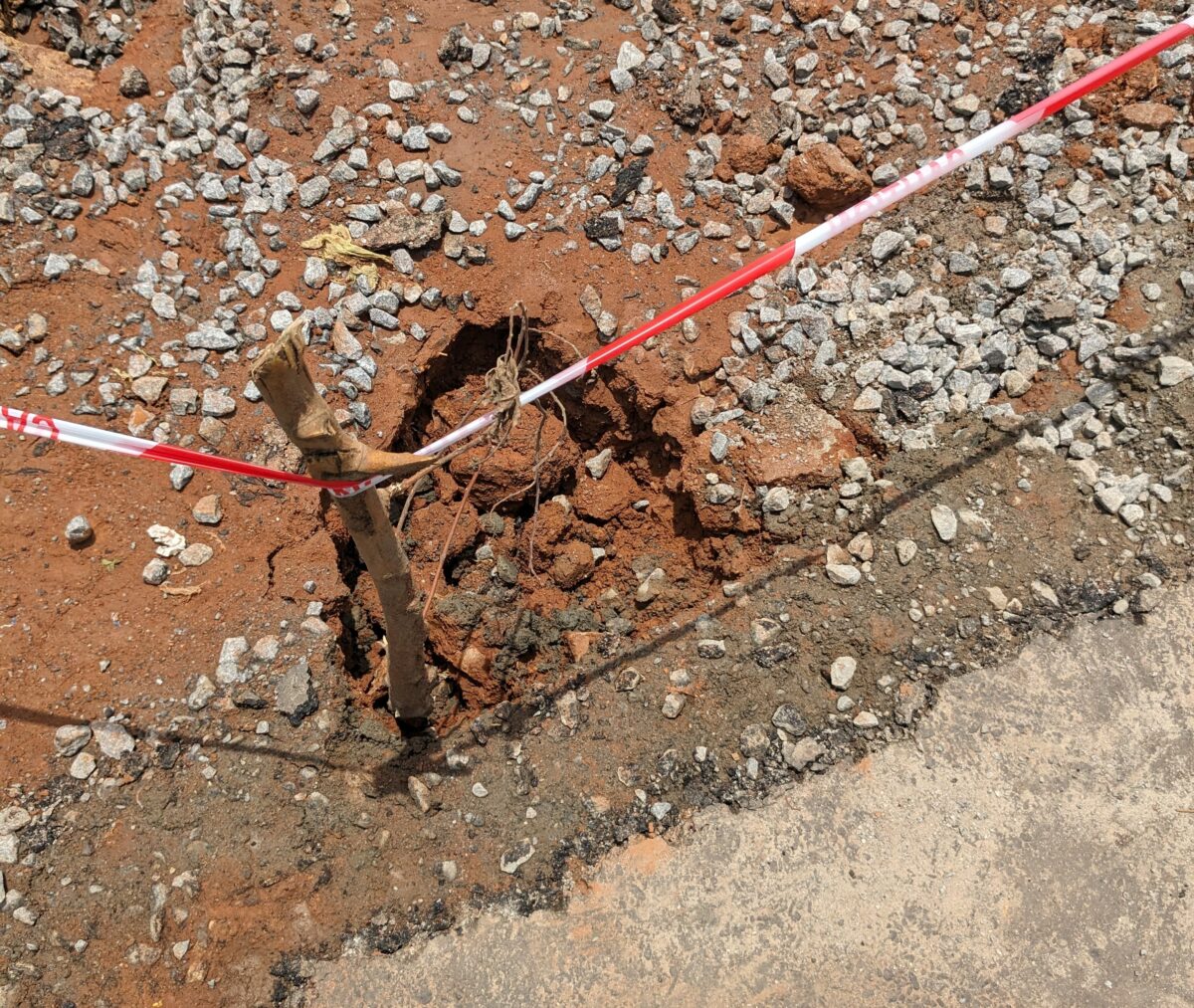

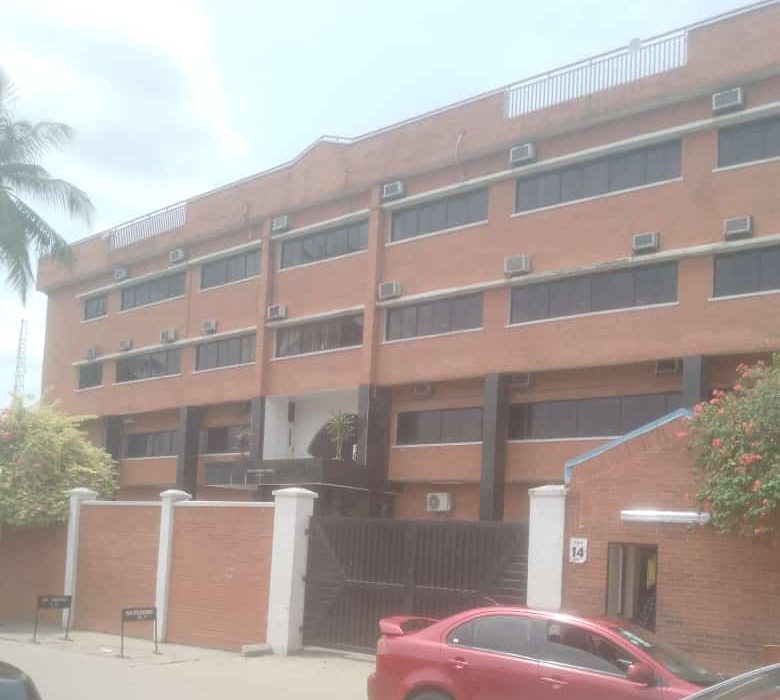
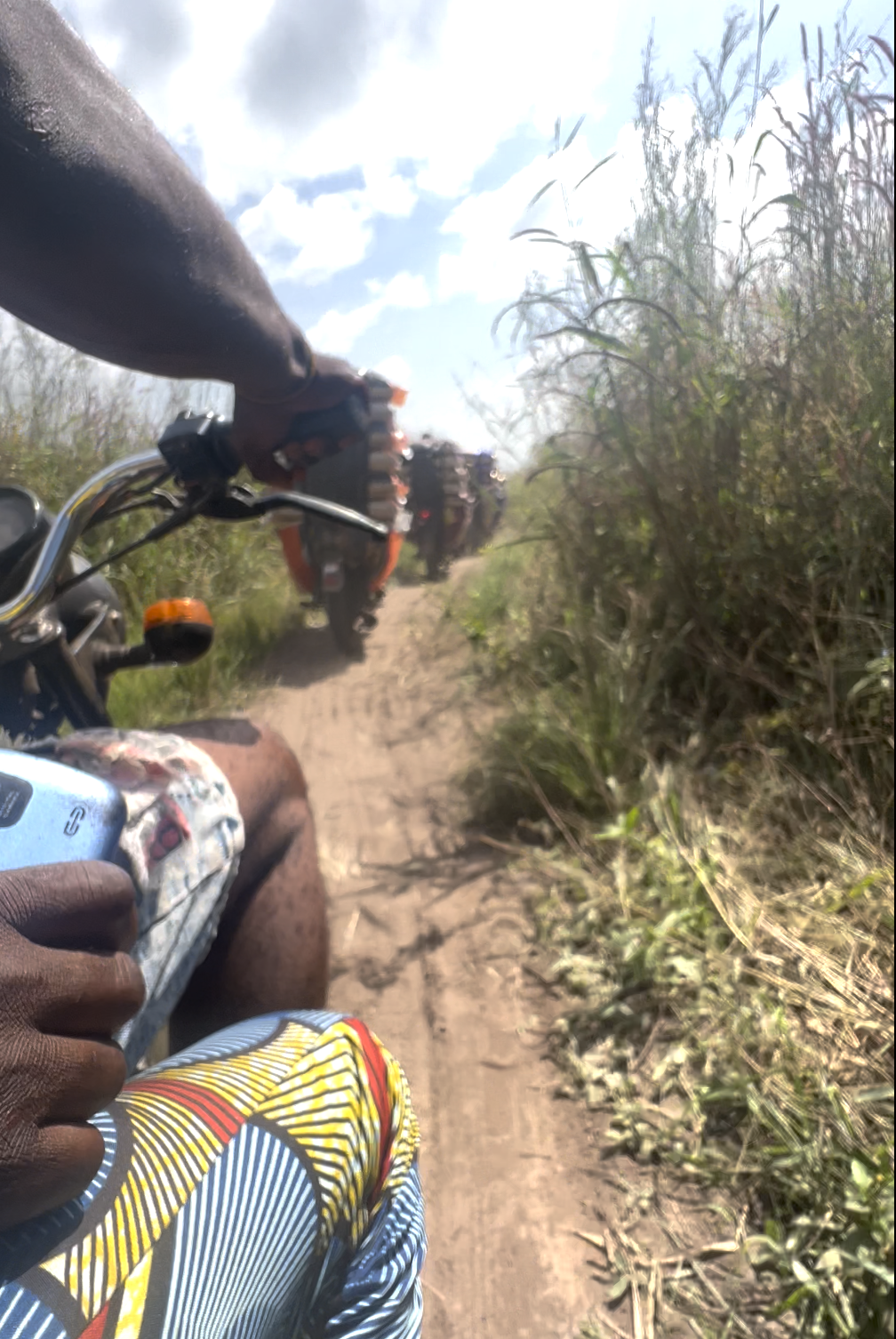
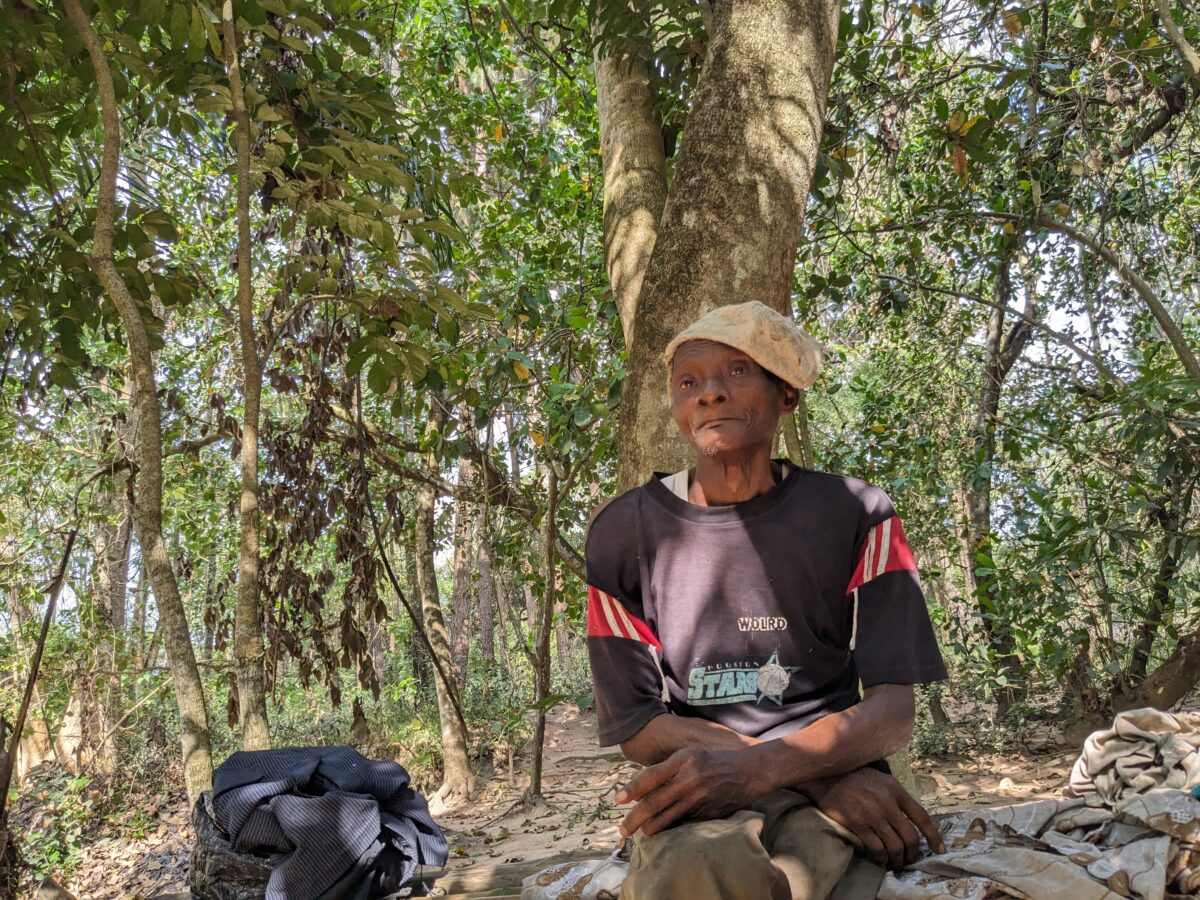
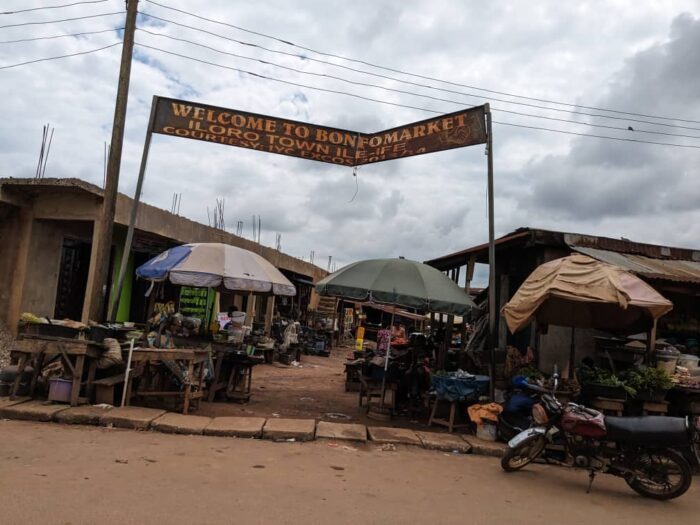
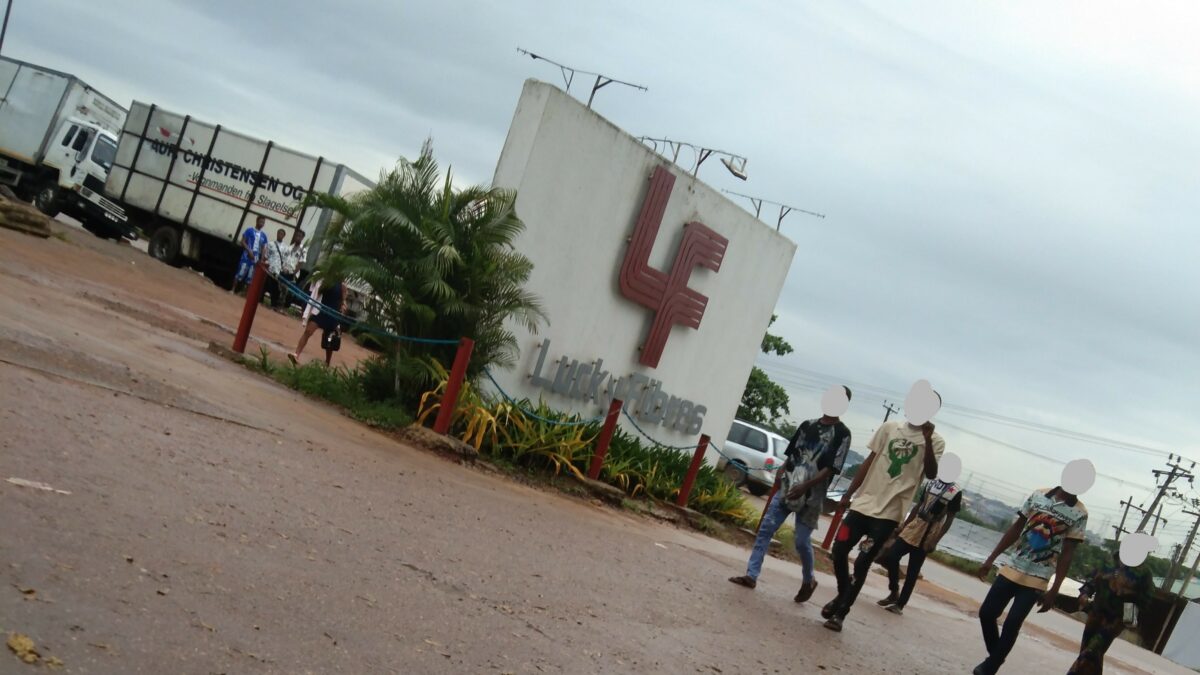
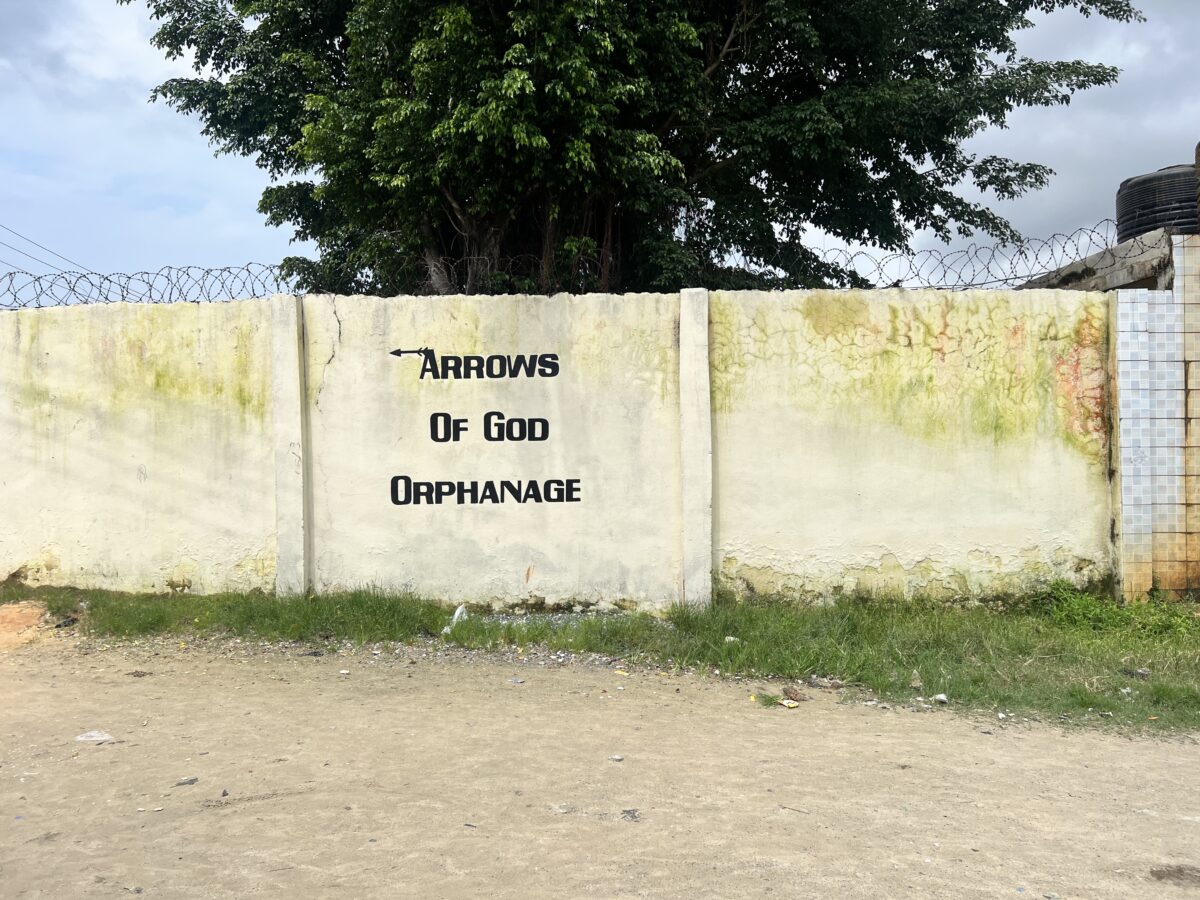
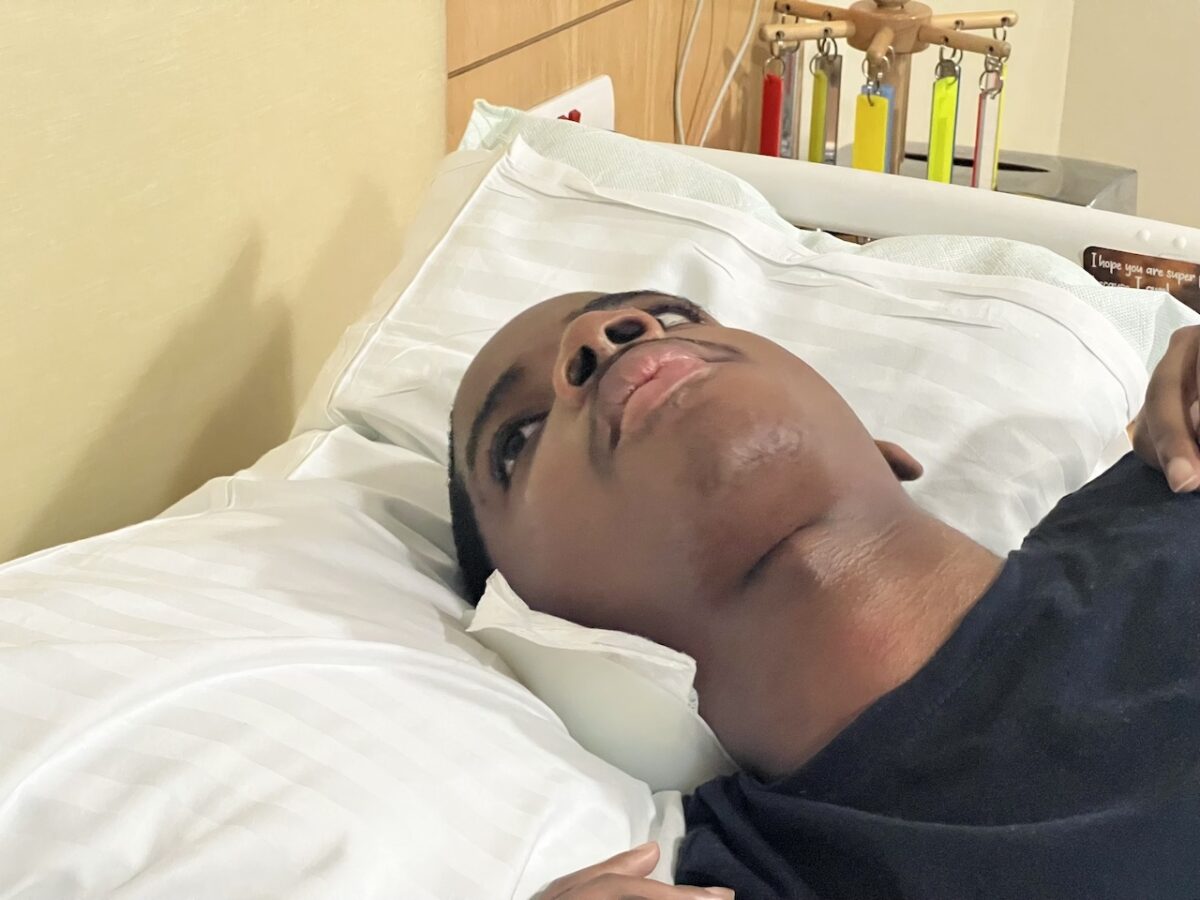


2 replies on “UNDERCOVER: From Ikeja to Lekki, LASTMA Officials Operate Like a Criminal Gang”
I can’t even start to share my experiences with lastma and police officers as an Uber driver in Lagos.. if you need more to add to your investigation, I suggest you interview Uber drivers / take a Corolla car and disguise as one, you’d be more shocked than you already are
I only hope this article gets the appropriate attention so what’s best can be done
LASTMA, a scheme by a tout-led Lagos state government, aimed at providing opportunities of extortion for younger touts.
Government developing infrastructures without proper planning. Roads blocked without alternative routes, all in the name of rebuilding roads that won’t even last 1year. Making life difficult for commuters.
Mono rails or robust public transport system is missing out, yet Lagos is said to be a mega city.
BRT is making a lot of gain, without competitions, even at being privatised and using facilities built with taxpayers money such as the lanes and bus stations, yet they are never expanding, instead the keep contracting.
How many busses did BRT take off with and how many are they left with now?
We should all be ashamed for continually supporting and promoting irresponsible people to the responsible seats of governance.